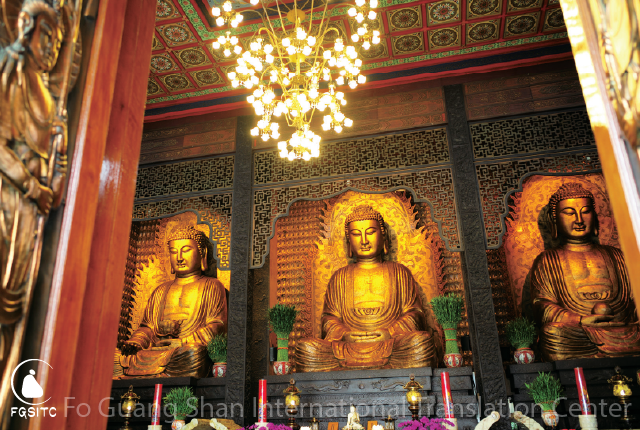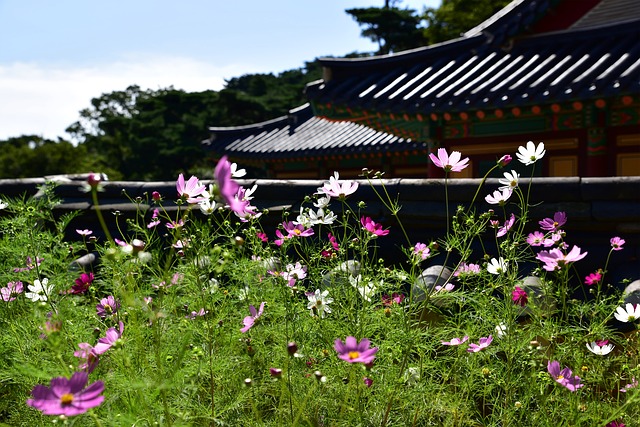Humans are “masters of the myriad creations of this earth” but are also the creators of problems. The arising of all problems in this world is related to humans, including today’s problems concerning environmental preservation. They also arise because of humanity’s selfishness, ignorance, and interruption of the harmony and natural cycles of the world, to the point where there are continuous natural calamities and changes. Thus how can we solve the present problems of environmental preservation?
Besides preserving the ecosystem, we should also place value on preserving our spiritual environment.
Preserving the ecosystem includes nature conservation, air purification, cleaning water sources, controlling noise pollution, trash management, and radiation protection. Also, the protection of biodiversity, ecology, and the entire earth are all under the area of environmental preservation. Preserving the spiritual environment includes the purification of concepts, language, and intentions.
For example, when you refuse useless knowledge and the pollution of thoughts, then that is the preservation of thoughts. When your concepts are righteous and always optimistic, then that is the preservation of concepts. When speech is pure and you refrain from swearing, duplicitous speech, and speaking harshly, then that is the preservation of language. When you have no worries, jealousy, unfairness, hatred, and such negative emotions, then that is the preservation of the mind.
Protecting the ecosystem relies on everyone’s concerted support. The preservation of the spiritual environment relies on the individual to purify the three karmas of body, speech, and mind. Environmental preservation usually takes place externally, yet internally, the purity of the mind is the greatest environmental preservation because Buddhism believes the establishment of the notion of environmental preservation should start from the human mind.
Our mind is like a factory. If the factory facilities are in good condition and the factory processes are normal, then the products will be high quality. If the facilities are not good, then not only are the products low quality, they will also pollute the air, water, and the entire environment. Thus, environmental preservation should start from the mind.
————————————————————————————————–
When the mind is well-protected, then preserving the external environment will be successful.
————————————————————————————————–
It is as the “Buddha Land Chapter” in Vimalakirti Sutra states,
“If one wants to be in a Pure Land, one should purify the mind. When the mind is pure, the land is pure.”
But how are we able to do spiritual and environmental preservation? It is like the saying, “To do a good job, one must first sharpen one’s tools.”
Usually, we sweep the floor with a broom, wash clothes with laundry detergent, and battle with weapons in good condition. Similarly, we need to clean away the filth in our minds with tools and weapons such as right view, right faith, compassion, wisdom, tolerance, diligence, friendliness, devotion, sacrifice, shamefulness, repentance, and so on. With these tools, the mind will be clear, bright, and clean. Then we will be able to defeat the army of defilement, become invincible, and win every fight.
Economists aim to “tap new resources and economize on expenses.” This does not just apply to money and materials. Actually, it is the greed, hatred, and ignorance of human minds that mainly causes the destruction of the ecosystem and the energy crisis. Thus, to “tap new resources” is to open up the source of Dharma. It is to also open up our own shamefulness, gratitude, joy, and mind.
To “economize on expenses” is to reduce the amount of money used. This is like restraining our own greed and hatred. Thus, placing value on environmental preservation and caring for the earth requires us to “tap new resources and economize on expenses.”
To advocate environmental preservation and to encourage everyone to participate in the environmental and spiritual preservation and purification campaign, everyone sould start with beautifying the mind and spirit and then extend outwards to beautify the environment, with the following twelve guidelines for practicing the preservation of body and mind:
(1) Speak quietly – do not disturb others.
(2) Keep the ground clean – do not litter.
(3) Keep the air clean – do not smoke or pollute.
(4) Respect oneself and others – do not commit any violence.
(5) Be polite – do not intrude on others.
(6) Smile – do not face others with an angry expression.
(7) Speak kindly – do not utter abusive words.
(8) Follow the rules – do not seek exemptions or privileges.
(9) Mind your actions – do not violate ethical rules.
(10) Consume consciously – do not waste.
(11) Be grounded – do not live aimlessly.
(12) Practice kindness – do not create malice. Environmental preservation starts with oneself.
It starts with purification of the individual; it then progresses to leading the nation, the society, and the entire world in purification.
During our everyday life, we do our best to “give others confidence, give others joy, give others hope, and give others convenience.” By practicing this, one will continuously purify and elevate oneself.
As such, one will be able to assist in establishing a Humanistic Pure Land of “family harmony achieved through deference, interpersonal harmony achieved through respect, social harmony achieved through cooperation, and world harmony achieved through peace.”
From Environmental and Spiritual Preservation, written by Venerable Master Hsing Yun.
Image from Pixabay.












